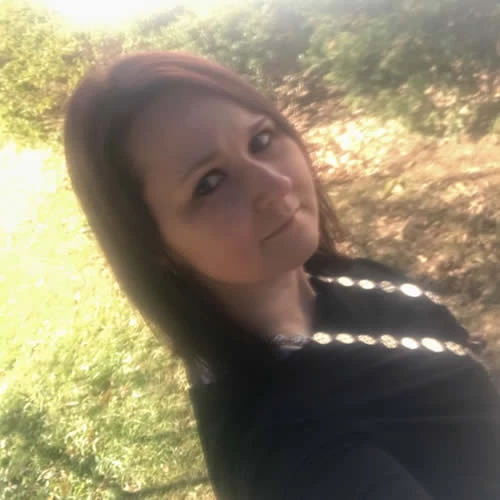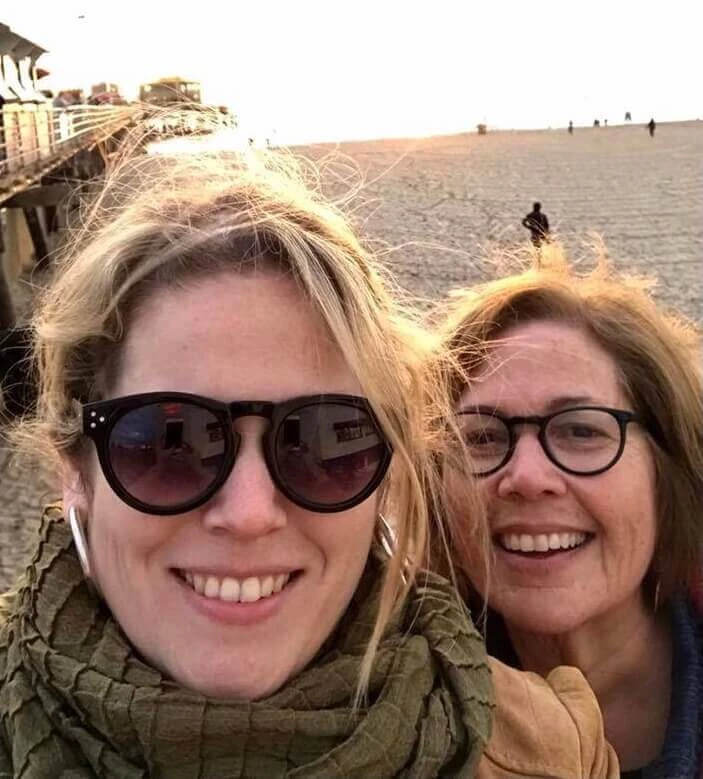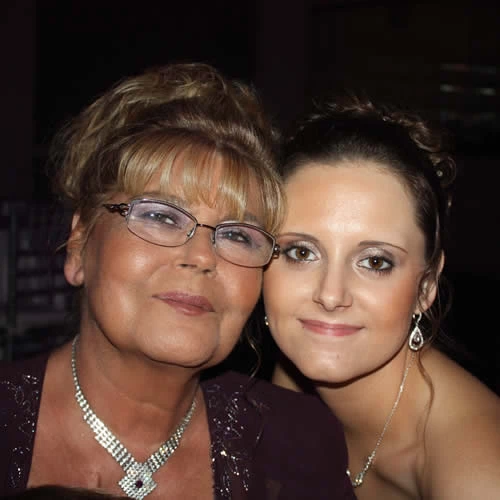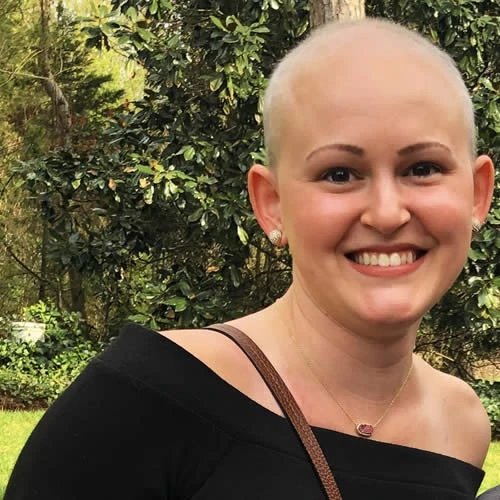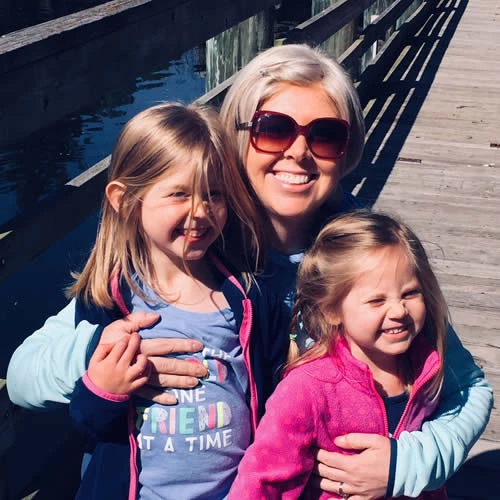Laura P Diagnosed at age 34
"I was given this journey because God knew I was strong enough to handle it."
My name is Laura Parker, and I am a breast cancer survivor. This is my journey with battling two types of breast cancer, Paget’s disease and DCIS at 34. I was misdiagnosed for a year. I had been seen by a dermatologist who performed a culture swab and skin shave biopsy. I was told that it was a rare bacterial infection, finegolda magna bacteria (f magna), that is usually found in the GI tract. I was treated with topical steroids and antibiotics. It kept coming back, and had started to get to where I always had to keep my nipple covered due to the oozing and ulceration. I knew in my gut it was more serious. During the course of the nipple showing signs of changes I found a lump. I had multiple mammograms and ultrasounds, all showed I had fibrocystic breast disease with microcalcifications. I was 33 at this time.
In December 2016, I went to my GYN, because for a year I had been battling the crusting oozing nipple. Two weeks later I was seen by a general surgeon for an excisional biopsy of the areola. In January 2017 the surgeon ordered a mammogram, ultrasound, and MRI with contrast; he also ordered a u/s biopsy after the initial scans came back to see if the lump was DCIS. Between the time the excision always biopsy and the ultrasound guided biopsy were performed, the doctor called me and told me that it was Paget’s disease of the breast. It was stage 0 and very rare but fast developing. The only treatment was a mastectomy. So, mentally I had already began preparing for a mastectomy. I received a call on 1/26/17, while at work (I was an adjunct professor at a local college that recently closed down) from the surgeon who performed my excisional biopsy stating that the lumps I had were DCIS, and that I for sure had Paget’s. A few minutes later I received a second call from him stating “he wasn’t sure what it was” and I’d need further testing. At this point, I wanted a “yes or no” on the secondary type of cancer. I self-referred to Brown Cancer Center due to the fact I needed more answers and did not want to undergo any unnecessary testing.
I met with my surgical oncologist in February 2017. He went over my history and had all my scans and pathology reports looked at. He confirmed without further testing that it was Paget’s disease of the breast and DCIS. Dr. Ajkay had only seen one other Paget’s case in his long career, and that was of his 88 year old grandmother! I was 34 at the time. On March 1, 2017 I had a radical mastectomy with one lymph node removed with tissue expander placed. I was ER- PR- HER2+ due to the Paget’s, with high grade DCIS. I did not have to go through chemo or radiation because my margins were clear. The recovery for that surgery was horrible, the expander fills were probably the worst.
On 7/20/17 I had my first stage of reconstruction performed. He performed a tissue expander swap with capsulectomy, breast implant placement on the left (my mastectomy side), and on the right he performed a lift and implant placement for symmetry. I went with Mentor memory gel silicone implants, 800cc on the left and 385cc on the right. On 10/5/17 I underwent fat grafting to fill in the depression areas left behind after my mastectomy because I was left with no fat tissue. My skin was scraped so thin that you could see through it, and during my initial reconstruction surgery, Alloderm had to be used because I did not have enough skin. During the fat grafting procedure, I had liposuction done on my stomach, the fat is then emulsified and injected into the breast. On average only about 50%-60% of transferred fat takes to the new area.
Overall, my prognosis is very good. I have to get mammograms and MRI every six months to monitor to see if there are any changes in my right breast. I keep a check on my remaining nipple daily to make sure there are no changes. Cancer not only affected me but my whole family, my husband and especially my two small children. My husband is a medically retired Army veteran who currently works at the Post Office. Because he had just started his new job and was only able to take off work two days, I had to do everything from appointments to driving the kids places almost a week after my first surgery. We don’t have family who could help. To me, this forced me to find my inner strength. My husband has been my rock through this. Our sons were nine & four when I was diagnosed and had surgery. My youngest is special needs, and has multiple therapies every week. I’ve had to handle my cancer and take him to his therapists and specialists at Vanderbilt University throughout the course of everything. He only knows that “Mommy had surgery.” My oldest, he wrestles, is involved in school activities, and up until my surgery date had maintained perfect attendance. If it weren’t for my husband and kids, I’m not sure I could have done this. Cancer doesn't just affect the individual, it affects the family.
Paget’s disease of the breast is misdiagnosed due to the fact that it presents itself in a way that resembles eczema. Unless the physician is familiar with the disease, they do not know what to look for. It does not show up on a typical mammogram or ultrasound. It took a breast MRI with contrast for my Paget’s and DCIS to show up. Paget’s is almost always accompanied by a secondary underlying breast cancer. The symptoms of Paget disease of the breast are often mistaken for those of some benign skin conditions, such as dermatitis or eczema (1–3). These symptoms may include the following:
- Itching, tingling, or redness in the nipple and/or areola,
- Flaking, crusty, or thickened skin on or around the nipple,
- A flattened nipple,
- Discharge from the nipple that may be yellowish or bloody.
Because the early symptoms of Paget disease of the breast may suggest a benign skin condition, and because the disease is rare, it may be misdiagnosed at first. People with Paget disease of the breast have often had symptoms for several months before being correctly diagnosed (https://www.cancer.gov/types/breast/paget-breast-fact-sheet). “I was given this journey because God knew I was strong enough to handle it.”
Are you a survivor, spouse, friend, or caretaker with a story to tell? We'd love to hear from you.

